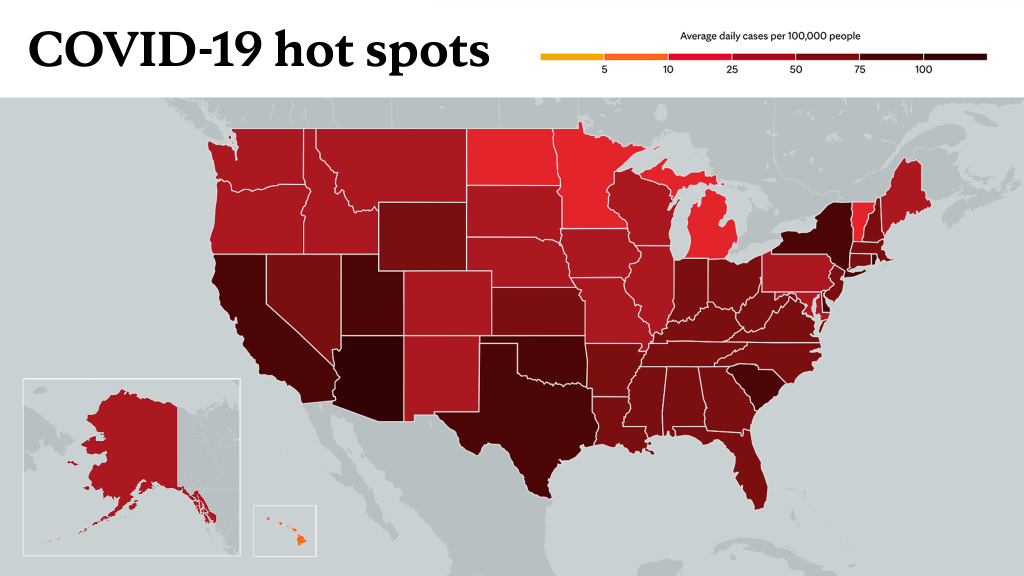
Public health officials continue to study and monitor variants of the SARS-CoV-2 virus that originated from the U.K., South Africa and Brazil. All three COVID-19 variants have been documented in the U.S.
Viruses constantly change through mutation, and new variants are expected, according to the Centers for Disease Control and Prevention (CDC). These three variants appear to spread COVID-19 more easily, but there is no evidence that they cause more severe illness or increase risk of death.
"The CDC is continuing to do surveillance across the United States to pick up the emergence of these variants here," says Dr. Melanie Swift, co-chair of Mayo Clinic's COVID-19 Vaccine Allocation and Distribution Work Group. "The variant that's in the U.K. — that has become the predominant strain there — has been detected in the United States. That variant has several mutations, and they all have more than one mutation. But the important thing is exactly where the mutations happen."
Watch: Dr. Melanie Swift discusses COVID-19 variants and vaccines.
Journalists: Broadcast-quality sound bites with Dr. Swift are available in the downloads. Please courtesy "Melanie Swift, M.D./COVID-19 Vaccine Allocation and Distribution/Mayo Clinic."
Scientists are working quickly to learn more about these variants, as they are seeking to control their spread. Research suggests that the Pfizer/BioNTech and Moderna vaccines still protect people from these COVID-19 variants. However, scientists are studying the possibility of adding booster doses after finding that the COVID-19 vaccines may be less potent against the South African variant.
"It has to do with the spike protein, which is what the messenger RNA vaccines make our bodies create. As long as the spike protein we create after vaccination is very similar to what's circulating in the community, then we'll be protected from those circulating strains," says Dr. Swift. "So we're watching the spike protein carefully. The variant that we've seen in South Africa has more mutations in the spike protein. And that means we're more concerned that vaccine might be less effective for that strain."
Even if variants affect the strength of the vaccines, experts say you still should get vaccinated for COVID-19. While it might not fight the variant virus as well, it's still fighting it.
Meanwhile, continue following precautions for avoiding infection with the COVID-19 virus, such as wearing a mask, social distancing, avoiding large gatherings and washing your hands frequently.
_______________________________
For the safety of its patients, staff and visitors, Mayo Clinic has strict masking policies in place. Anyone shown without a mask was either recorded prior to COVID-19 or recorded in a nonpatient care area where social distancing and other safety protocols were followed.
Information in this post was accurate at the time of its posting. Due to the fluid nature of the COVID-19 pandemic, scientific understanding, along with guidelines and recommendations, may have changed since the original publication date.
For more information and all your COVID-19 coverage, go to the Mayo Clinic News Network and mayoclinic.org.
Learn more about: Tracking COVID-19 and COVID-19 trends








